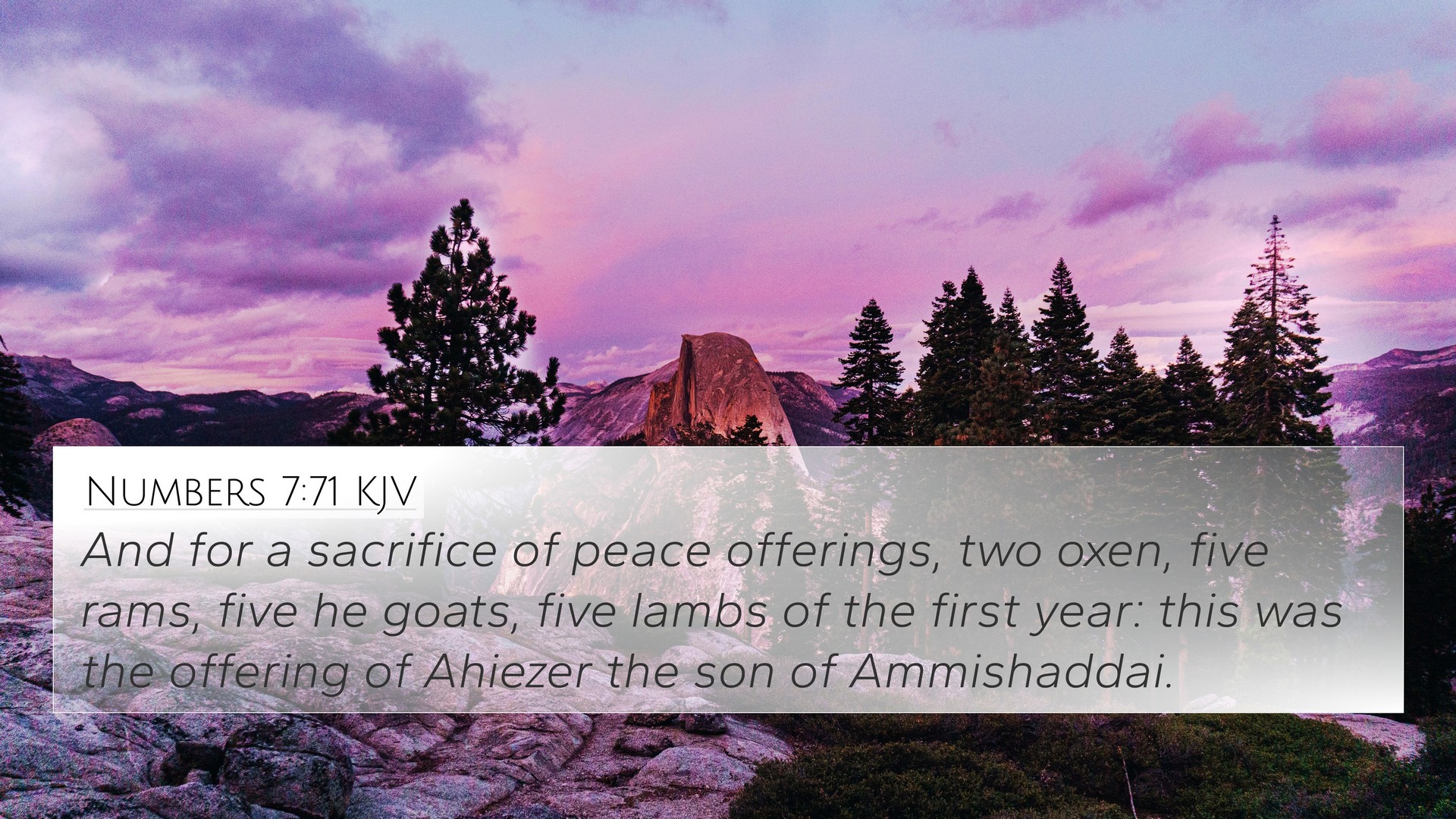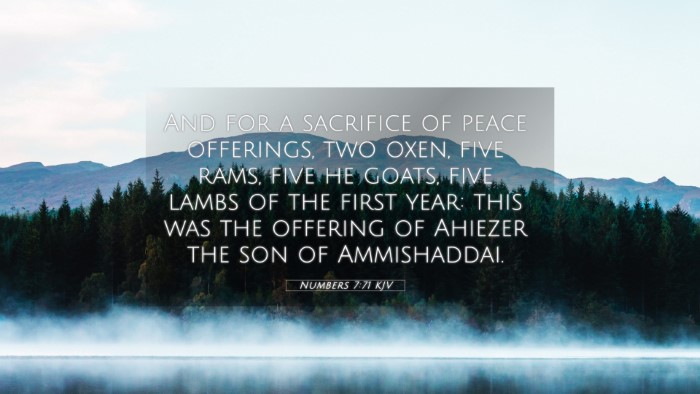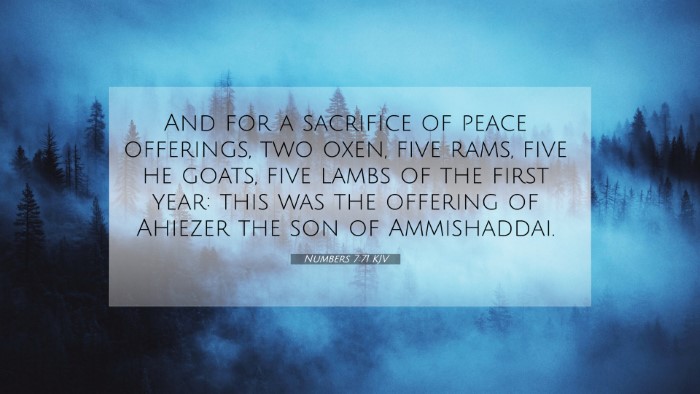Understanding Numbers 7:71
Numbers 7:71 presents a significant moment in the biblical narrative, highlighting the importance of the offerings made by the leaders of the tribes of Israel during the dedication of the altar. This verse reflects the themes of leadership, community responsibility, and the covenant relationship between God and His people.
Verse Context
In the surrounding chapters, we see the Israelites preparing to enter the Promised Land, with specific instructions for worship and offerings given by God through Moses. Numbers 7:71 specifically mentions the offerings made by the tribe of Issachar, signifying the unity and dedication of the tribes to God's service.
Commentary Insights
Matthew Henry's Commentary
Henry emphasizes the significance of the tabernacle and its furnishings, which represent God's dwelling among His people. Each offering signifies the worshiper's acknowledgment of God's provision and grace. Through these acts, the leaders manifest their commitment to God’s covenant, highlighting the importance of community in worship.
Albert Barnes' Notes
Barnes notes that the offerings were not merely ritualistic; they were a way to exhibit gratitude and commitment to the Lord. He stresses that each tribe's offering contributes to the communal worship life of Israel, reinforcing the connections within the community and their shared identity as God’s chosen people.
Adam Clarke's Commentary
Clarke points out that the offerings were systematic and recorded, which indicates the importance of order and accountability in worship. He highlights the spiritual significance of the gifts, stating that they symbolize the hearts and lives of the givers, showcasing their willingness to participate in the sacred obligations of their community.
Thematic Connections
This verse opens discussions on several key themes in the Bible:
- Community Worship: The offerings unite the tribes in common devotion to God.
- Leadership Responsibility: The leaders set an example for their communities through their generosity.
- Covenantal Relationships: The act of giving reinforces the bond between God and His people.
Bible Verse Cross-References
Numbers 7:71 can be cross-referenced with several other biblical passages for deeper understanding:
- Exodus 25:2: God’s instruction on offerings from the people.
- Leviticus 23:37: Instructions regarding feasts and offerings.
- Deuteronomy 16:17: Acknowledgment of giving according to one’s blessing.
- 1 Chronicles 29:6-9: David’s collection for the temple and the people’s joyful response.
- 2 Corinthians 9:6-7: New Testament principles of giving willingly and joyfully.
- Philippians 4:18: Paul’s reference to the generosity of the Philippians as a fragrant offering.
- Malachi 3:10: God's encouragement to bring the full tithe and the promise of blessings.
How This Applies Today
In modern application, Numbers 7:71 serves as an encouragement for believers to participate actively in their faith communities. The principles of responsibility, gratitude, and communal worship found in this verse resonate today as congregations seek to serve God and support one another, fostering unity and collective spirituality.
SEO-Optimized Keywords Usage
To better understand the meaning and implications of Bible verses like Numbers 7:71, tools for Bible cross-referencing are invaluable. A bible concordance or a structured bible cross-reference guide helps uncover connections between Bible verses and can enhance personal study. The comparative Bible verse analysis enables one to see not only the direct message of a verse but its broader implications within scripture.
Useful Tools for Study
- Bible Concordance: Helps locate verses and their occurrences in the Bible.
- Bible Cross-Reference Guide: Provides links between similar themes across scripture.
- Online Biblical Resources: Offer extensive databases for studying scriptural relationships.
Conclusion
Numbers 7:71 exemplifies the rich tapestry of communal worship and sacrificial giving in the life of Israel. Engaging with this verse through cross-referencing shows its considerable implications, not just for its original context but for contemporary faith practice as well. As we explore such texts, we deepen our understanding of the Bible’s interconnected wisdom and how it speaks into our lives today.


